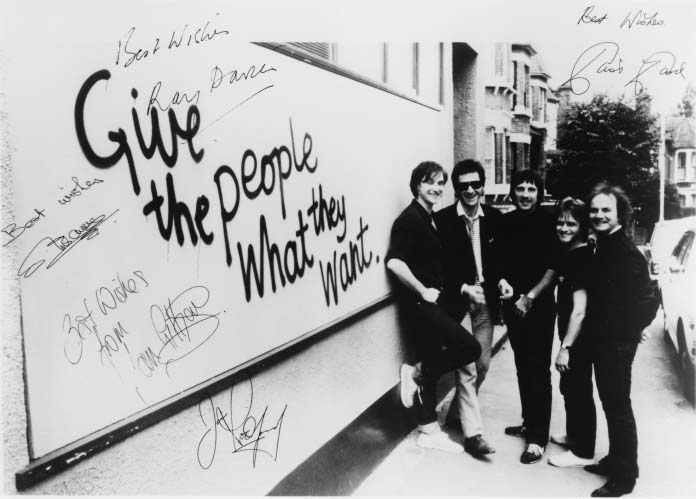
Around 1 a.m. on election night, NBC News cut to the Javits Center, the glass-ceilinged site of the Clinton campaign’s planned celebration. And there amongst the throng of stunned supporters was Stevie Wonder, leaning against a railing, looking tired and perplexed. After so many hours wiping tears and swallowing bile, it was the appropriate capstone to my evening.
Four days earlier, I had written about how Wonder’s classic 1976 song “Pastime Paradise” was the only thing keeping my election stress at bay. An all-too-relevant warning about the dangers of nostalgia, delivered in the artist’s clarion call of a voice, it was the perfect delineation of America’s crisis. Would we be driven by fear, or by hope?
Well, more of us were driven by hope, but fear still won. More than 60 million Americans voted for a man whose entire platform fit on a hat. Donald Trump promised to bring back the steel industry, with no plan. He promised to fix the inner cities, with no plan. He claimed to love women more than anyone, even though we all heard his detailed plan for sexually assaulting them.
So forgive me if my new Song of the Election takes an especially bitter view of what we all value as humans. “Give the People What They Want” was written by Ray Davies as a commentary on “if it bleeds it leads” journalism. Over a huge arena rock riff, Davies posits that while our media gatekeepers are pretty scummy, it’s the audience that deserves most of the blame. Violence means ratings.
The more they get, the more they need
And every time they get harder and harder to please
America loves a trainwreck. And after eight years of a president who valued calm, rational diplomacy in the face of rampant hate, we’re hungrier than ever. We haven’t gotten to rubberneck in forever. So along comes Trump, promising to blow it all up, to drain the swamp, to grab our better angels by their pussies. His stanky middle finger of a campaign appealed to a nation that was tired of being governed. We wanted to be entertained, much like the Romans that Davies devotes his second verse to:
The Roman promoters really did things right
They needed a show that would clearly excite
The attendance was sparse so they put on a fight
Threw the Christians to the lions, sold out every night
“Give the People What They Want” does not sound like a typical Kinks song – its rudimentary blues hook is produced to a sheen, combining the catchiness of The Ramones with the emptiness of Kiss. There’s a screaming bar band guitar solo right where you’d expect Van Halen to put one. In an inspired satirical move, Davies infused his cynicism into the music itself, giving mainstream audiences what it wanted in 1981.
There’s a level of pretentiousness to this approach. Not all arena rock is bad. Not all people who find violent stories entertaining are bad. But I can’t help but identify. The acidity of this song tastes a lot like the bile I was swallowing in those early hours on November 9. More than 60 million Americans would rather have Norman Rockwell come back from the dead and give every coal miner a hand job while yelling “All Lives Matter” than vote for a woman. Our country is still virulently sexist, and racist, and embarrassingly susceptible to con artists.

I’m truly afraid that Trump will actually try to build the 1950s white nationalist theme park that he promised us. But my biggest fear is that most of us will cheer him on. That chaos truly is what the people want. As Davies points out in his final verse, this obsession is nothing new:
When Oswald shot Kennedy, he was insane
But still we watch the re-runs again and again
We all sit glued while the killer takes aim
There is an upside to this bleak picture. “Give the People What They Want,” and the 1981 album of the same name, is a hell of a lot of fun – irony be damned. Ray Davies translated his disdain for humanity into what was arguably the last truly excellent Kinks album. Four years of President Trump is guaranteed to inspire many such works of art. And we’re going to need them. The bond between songwriter and listener is about to get even stronger.

